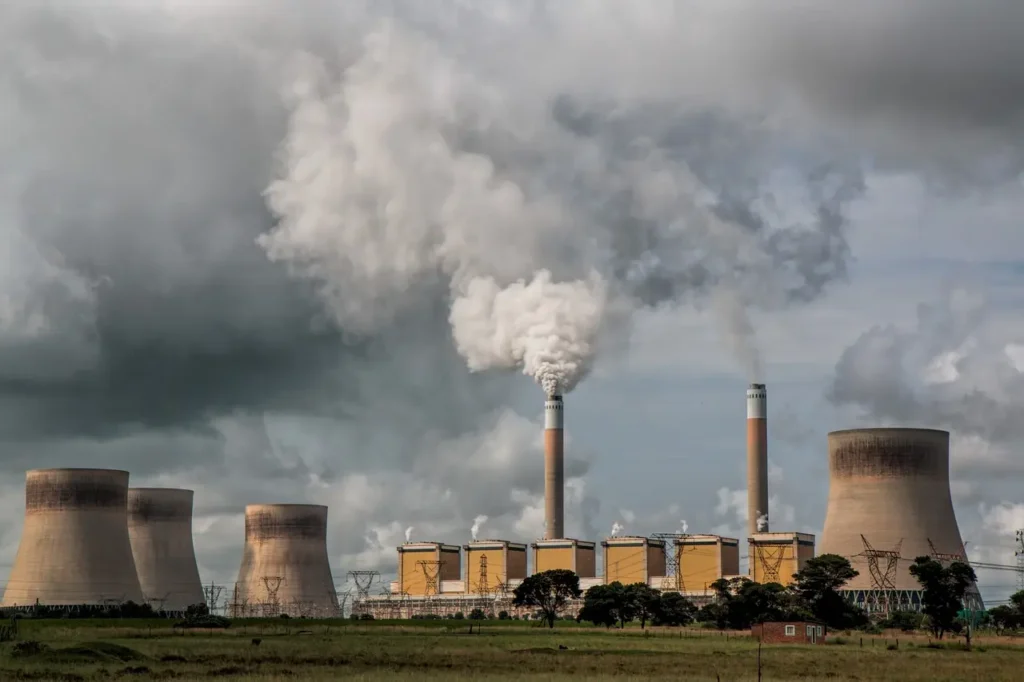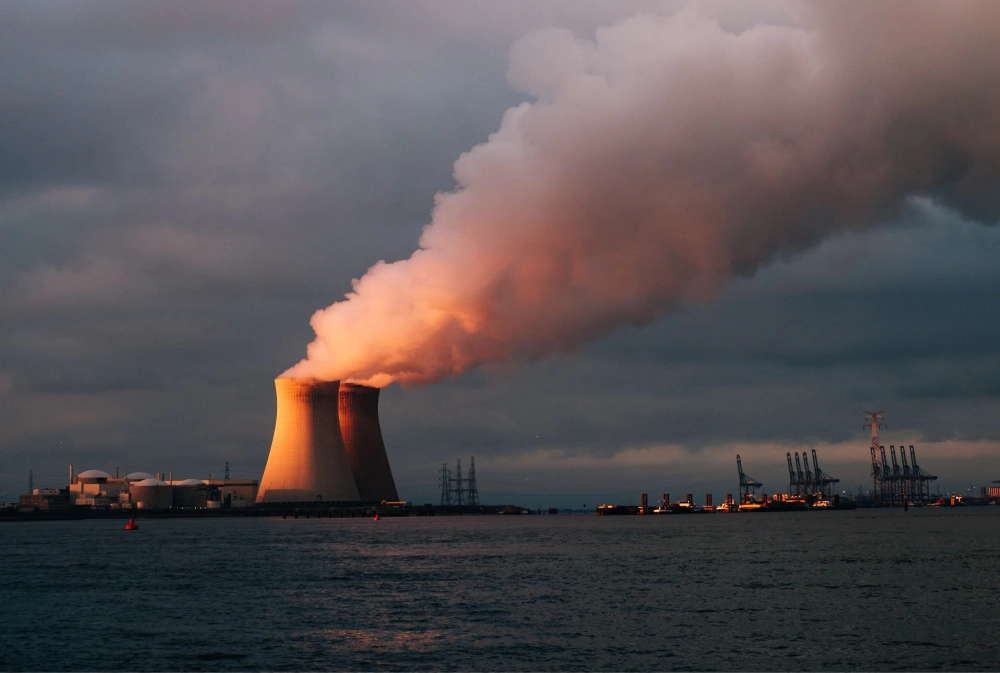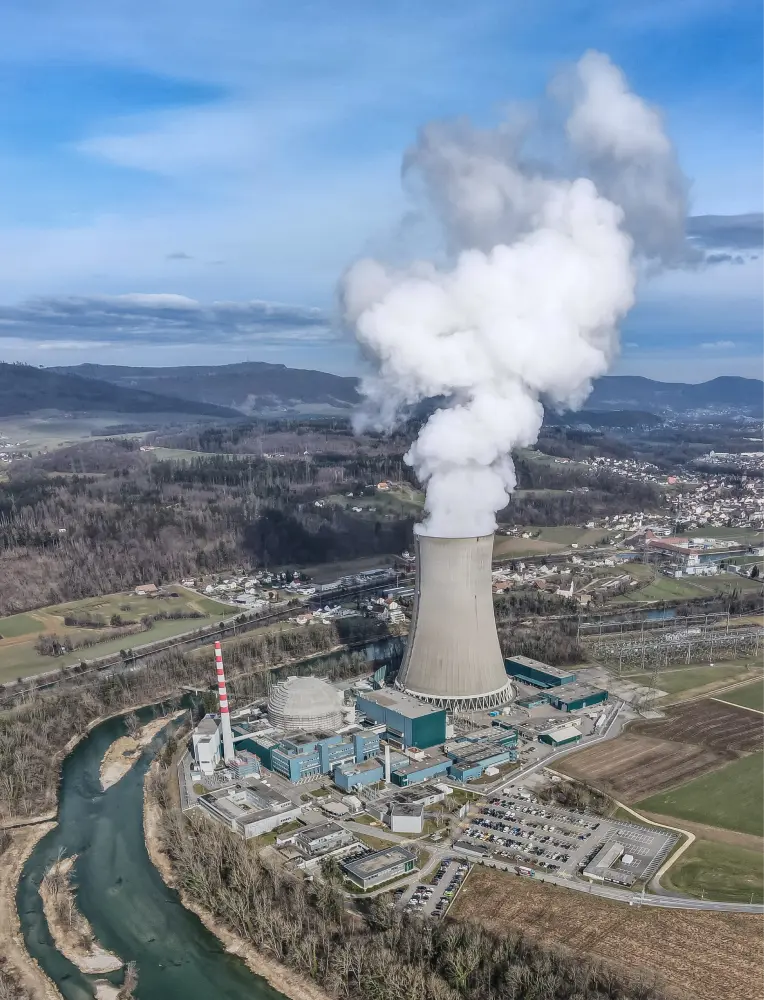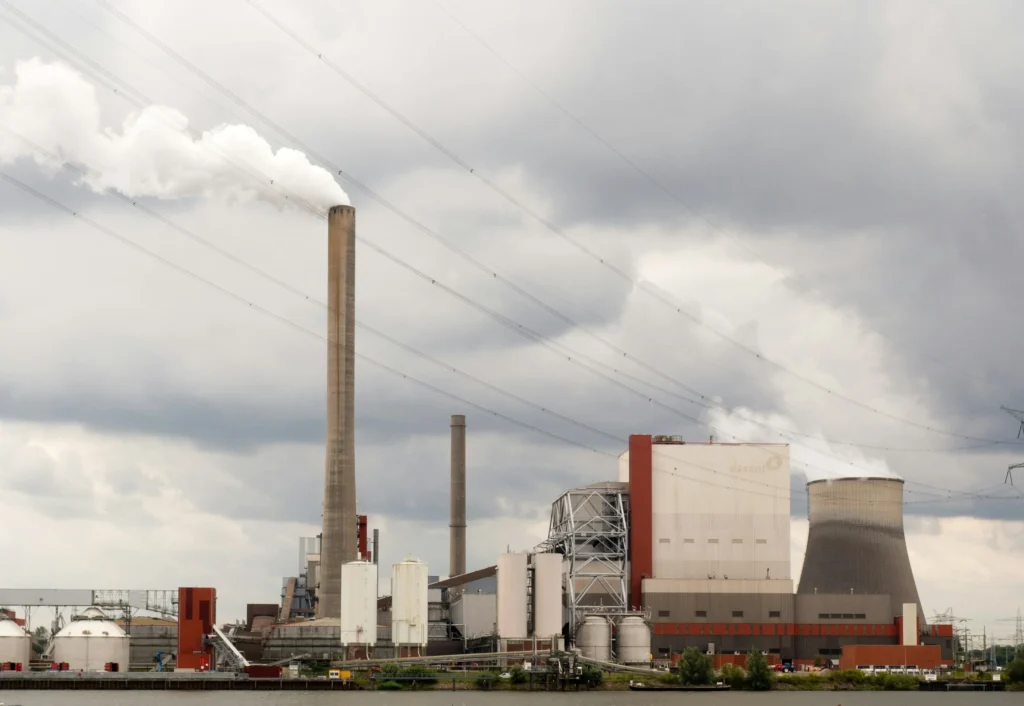
Pros and Cons of Nuclear Energy
3 minute read • Last update September 2024

In this article
What are the pros and cons of nuclear energy?
| Pros of nuclear energy | Cons of nuclear energy |
|---|---|
| Low greenhouse gas emissions | Nuclear accidents |
| High energy production efficiency | Fission produces nuclear waste |
| Superior reliability | High development and construction costs |
| Meeting base load grid demands | Dwindling fuel supply on the horizon |
| Reduced dependency on fossil fuels | Nuclear proliferation security concerns |
| Lengthy construction timeframes | |
| Negative public perception | |
| Difficult to decommission |
Advantages of nuclear energy
Discover the many benefits to nuclear power plants:
1. Low greenhouse gas emissions
Nuclear fission, the process that fuels power generation at nuclear plants, do not emit greenhouse gases such as carbon dioxide. However, nuclear power plants are not 100% free of greenhouse gases as there are several sources of indirect emissions: the construction of the facilities, the mining of uranium to fuel the plants, and the transportation of nuclear waste.
These indirect sources of emissions do contribute to global warming, but the contribution is significantly lower than that of power plants fueled by fossil fuels.
2. High energy production efficiency
Nuclear power plants require small amounts of fuel to generate a large amount of electricity. This high energy density is a huge benefit of the power source.
3. Superior reliability of power generation
Wind and solar farms depend on the availability of sunlight and strong winds to generate power. Nuclear power plants have no such requirements. They are able to provide a stable and continuous source of power despite the majority of weather conditions.
4. Meeting base load grid demands
This constant flow of energy provided by nuclear power plants makes them well-suited for meeting a power grid’s base load demands. This is the amount of energy required to meet the grid’s minimum electricity demand.
5. Reduced dependency on fossil fuels
Nuclear energy does not require the burning of fossil fuels to generate electricity, which means that they aid in the mitigation of the environmental impact of burning fuels like coal and oil. This is incredibly important in the fight against climate change.

Disadvantages of nuclear power
Nuclear energy is not without its drawbacks. Now that we’ve explored the benefits, let’s dive into the downside:
1. Nuclear accidents
There is potential for dangerous and catastrophic nuclear incidents, like those that happened at Chernobyl in 1986 and Fukushima in 2011. Accidents like these release radioactive waste, exposure to which can cause lasting health issues or even death. The environment surrounding an accident can become unusable and dangerous to visit for years.
2. Fission produces radioactive waste
Nuclear power plants rely on fission reactions to generate electricity. This chemical process creates radioactive waste that remains radioactive and hazardous for thousands of years. As a result, the transportation, storage, and disposal of this waste presents a significant challenge.
3. High development and construction costs
The construction of a new nuclear power plant can cost billions of dollars. This makes nuclear power seem uneconomical in the short term compared to other types of generation plants for investors and builders.
4. Dwindling fuel supply on the horizon
The primary fuel supply of nuclear reactors is an ore called uranium. There is a finite supply of uranium on the planet Earth. While technology advances to continue to make nuclear plants even more efficient, along with the introduction of new types of reactors, the limited supply raises concerns about the long-term viability of nuclear power as a source of energy.
5. Nuclear proliferation security concerns
As nuclear power becomes more popular and prevalent around the globe, concerns surrounding the development of nuclear weapons increase as well. In the wrong hands, this technology can be used to cause mass devastation.
6. Lengthy construction timeframes
It can take over a decade to complete the construction of a new nuclear power plant. This makes nuclear power less attractive for quickly increasing electricity demand compared to other sources of energy that can be developed more quickly.
7. Negative public perception
The well-known history of nuclear accidents and the creation of radioactive waste often leads to negative public perception of nuclear power plants. Opposition from local communities can delay or make the construction of new facilities impossible.
8. Difficult to decommission
The decommissioning of nuclear power plants at the end of their operational life poses challenges, both technically and financially. Proper decommissioning is essential to ensure the safe removal of nuclear materials and the restoration of the site.
Written by Graham Lumley
Graham Lumley, Digital Marketing Manager at BKV Energy, leads digital and traditional marketing strategies, focusing on educating Texans about the state's deregulated energy market. With over 8 years of marketing experience, he creates content to help consumers understand and save on their energy bills, bringing a fresh and dynamic approach to the industry.
Related articles

Is Coal Renewable?
3 minute readCoal is a natural energy source that has played a crucial role in powering human development for centuries. It forms deep within the Earth over millions of years through an intricate process involving the decomposition of plant material under heat and pressure. Despite its natural formation, the process is too…
Get $50 off your electric bill!
Use code BKVEJOINUS50
Enter your zip code to shop BKV Energy's affordable, fixed-rate Texas electricity plans. Use the promo code for $50 off your electric bill.
